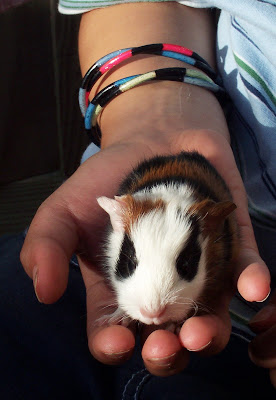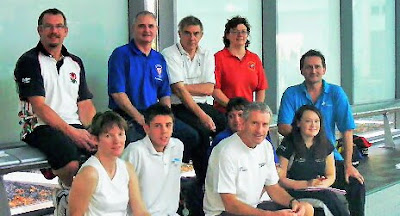B822 Technique Library
My mother has always had a large drawer in a sideboard full of board games: Risk, Monopoly, Twister, Cluedo and Othello, and at some stage Chartbuster, Kerplunk, Masterpiece, Mousetrap and others.
Having picked my way through the B822 Creativity Innovation and Change ‘Technique Library’ A5 folder I feel I am looking into this drawer.
IDEA ONE: VISUALISATION
We have a large ‘Really Useful Box’ full of board games too.
In order to appreciate the game, to know if you like or loathe it, to know who would or would not enjoy it, you have to get them out and have a play. Over time attitudes to a game change. People take on a persona, you expect a certain kind of performance out of them. I rarely win at Monopoly because I buy everything until I run out of money.
Returning to the idea of a collection of board games I would far prefer a colourful pack of A5 cards, on one face an image, perhaps a colourful, humorous Steven Appleby cartoon, on the other the ‘game’.
The B822 Techniques ‘Library’ of assembled cards, ideas, folder is ‘like a collection of board games’ you might find at your Mum’s, in a box in the garage, or stacked on a cloakroom shelf in a holiday cottage. You get them out when you are bored, or in this case, stuck for an idea.
Middle Farm sells many varieties of cider and perry.
There is no catalogue. You cannot taste a list of titles. You collect a tasting cup and try out a selection; you get stuck in. You can ask the experts behind the counter, when you have something to discuss.
The B822 Techniques ‘Library’ of assembled cards, ideas, folder is ‘like a cider distillery’ where, to get beyond the titles and cataloguing, especially the false preference given by alphabetical order, you have to ‘have a taste’ and come to your own opinion.
My approach, against the advice, has been to read through them all. I remain tempted to take them all out and glue them inside pieces of card on which I will do a doodle or stick an image.
My first selection, my inquisitive mind, likes the look of :
Analogies
A succinct definition is required: A form of logical inference or an instance of it, based on the assumption that if two things are known to be alike in some respects, then they must be alike in other respects. (http://www.thefreedictionary.com/analogy)
There is an albatross airplane, this one in the USAF. It looks like a Puffin or a Dodo.
I would never liken a Jumbo jet to an albatross as the bird already has negative connotations. You cannot see it for its history. You shoot the thing and hang it around your neck.
A puffin or cormorant then.
Does anyone need to be told why a Jumbo jet and an albatross are not alike?
Filling in the blanks and sticking with the albatross I get the improbably sentence, ‘This problem makes me think of an albatross – that suggests to me that maybe we could try feathers (idea drawn from albatross)’. Sounds like a dead duck. Are there planes that were an albatross?
Perhaps Leonardo Da Vinci thought of a plane as a bird?
Were I to be introduce the concept of analogies to a group I would start with a blank sheet, seeking out people’s favourite analogies for everyday situations or problems and build from there. There’s a problem if you set in train a thought, here ornithological. Before you know it all the ideas are tits and boobies, eagles and dodos.
‘Try to find core verb phrase that captures the essential functional nature of what you are looking for’ (Martin & Bell, 2010). (There are no page numbers, so how do you reference it?)
If analogies taught the world to think, then promoted like this I would conclude that to use an analogy with its ‘analogues’ (sic) is akin to painting by numbers. It is present in such an unnecessarily analytical manner.
Definition: An analogue is: something analogous to something else (http://www.thefreedictionary.com/analogue)
How can a simple concept me made to sound like something carried out by an audit team from the local firm of accountants. It sounds painful rather than fun.
I have to look up (q.v) as in quo vid, or ‘which see’.
I track down the reference to Gordon by ‘going to see’ Synectics, a software version as ThoughtPath exists.
· Are you dealing with the person who owns the problem?
· Are they looking for a number of solutions
· Establish the team
If ‘analogies are often used very informally’ then an informal, rather than this proposed formal approach should be offered.
1. What is it you want ideas for?
2. Based on the verb phrases list items that it is like
3. Pick an interesting one
4. Describe the analogy
Gordon (1961) identified four types:
· Direct
· Symbolic
· Fantasy
· Personal
IDEA TWO: MIND-MAP
IDEA THREE: RELATIONAL DATABASE
I would put all these problems onto a wall chart. I’d put everything online into a blog that could be searched by tag (or key word), or load them into a relational database such as FilemakerPro.
Twenty years ago (perhaps fifteen?) I used a CD-ROM called 'Ideafisher' to help generate ideas. I treated it as the equivalent of a mental tickling stick, not a set of answers, but a potential catalyst that would open up my mind (sometimes too far).
REFERENCE
Gordon, W.J.J. (1961) Synectics, New York, Harper & Row.
VanGundy, A.B. (1988) Techniques of Structured Problem Solving, 2nd ed, Van Norstrand Reinhold. Techniques 4.01, 4.06, 4.57

